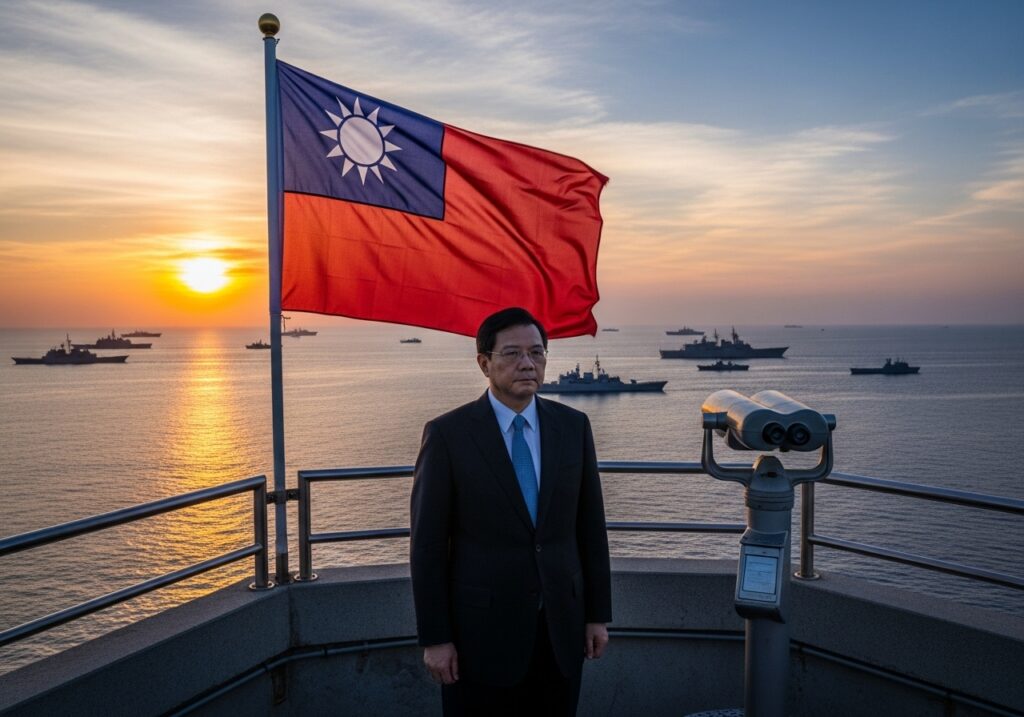The latest war of words between China and Taiwan is more than just name-calling. It’s a sign of rising tensions that could affect the United States in serious ways. This week, China lashed out at Taiwan’s President William Lai after he praised President Donald Trump and asked for more U.S. help to keep peace in the region. China accused Lai of “prostituting himself” and “selling out” to foreign powers—a rare and harsh attack from the Chinese Communist Party.
This kind of language shows how upset Beijing is. China sees Taiwan as part of its territory and wants to take control of the island, with or without force. Taiwan, on the other hand, sees itself as a free and sovereign nation. It has its own government, military, and elections. Most of the world, including the U.S., does not officially recognize Taiwan as a separate country, but that hasn’t stopped America from helping Taiwan defend itself.
President Lai’s comments came during an interview on a popular American radio show. He said that if President Trump can convince China to give up using force against Taiwan, he deserves the Nobel Peace Prize. Lai warned that if China is allowed to take Taiwan, it would become stronger and more dangerous to the U.S. He’s not wrong. Taiwan sits in a key location in the Pacific. If China controls the island, it could push the U.S. Navy farther out to sea and threaten important shipping lanes that carry goods and fuel to America and its allies.
China’s military has been growing fast. By 2027, it is expected to be ready for a possible invasion of Taiwan. The only real obstacle in its way is the U.S. military. That’s why Taiwan needs strong support from Washington. But things have not been simple under Trump’s second term. Last month, the administration cut $400 million in military aid to Taiwan. Some say this was to help smooth trade talks with Chinese leader Xi Jinping. Still, President Lai says Trump has done more to help Taiwan than past administrations.
Lai also pointed out that while the U.S. has its own problems at home—like the economy and border security—it still plays a major role in keeping global peace. He said that even as trade talks with China continue, military and diplomatic support for Taiwan has grown, not shrunk. That’s a key point. America has to balance its economic interests with national security. Giving up Taiwan to China might make trade easier in the short term, but it could invite aggression in the long run.
Not everyone in Taiwan agrees with relying on the U.S. so strongly. Eric Chu, a leader of a more conservative party in Taiwan, warned that Taiwan should depend more on its own people than on foreign powers. That’s a fair concern. But the reality is, without U.S. support, Taiwan would stand little chance against China’s massive military.
So what does this mean for Americans? First, we must understand that Taiwan is not just some faraway island. It’s a key ally in a region where China wants to dominate. If Taiwan falls, it could start a chain reaction. Other countries might give in to Chinese pressure. The U.S. would lose credibility and influence. That’s dangerous for both our economy and our national security.
President Trump has said that Xi promised not to invade Taiwan while he’s in office. That may buy time. But time is not on our side. China is building ships, planes, and missiles every day. America must stay strong and clear-eyed. We cannot let China rewrite the rules of the world. Supporting Taiwan is not just about helping a friend—it’s about protecting our own future.
The situation is tense, and the choices are tough. But one thing is clear: what happens in Taiwan won’t stay in Taiwan. It will echo across the Pacific and affect every American.

